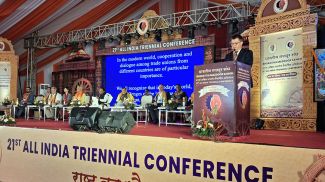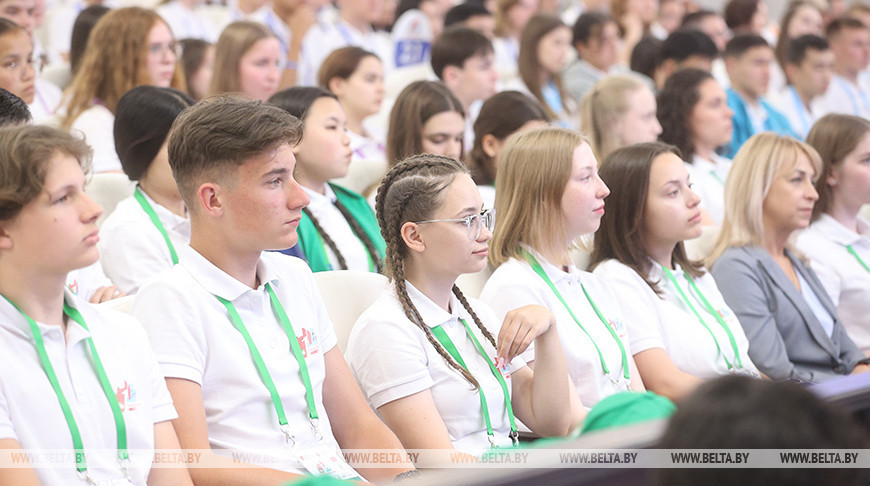
BREST, 21 June (BelTA) - It is symbolic that The Memory Train project starts in Brest, Chairperson of the Council of the Republic Natalya Kochanova said as she met with the project participants, BelTA has learned.
"This year is a special date for our country. 80 years ago, our country was liberated from the Nazi invaders. This Victory was achieved through a contribution of every nation of the former Soviet Union," Natalya Kochanova said, addressing the children from eight countries. "We are grateful. We bow low to all who liberated our country from the Nazi invaders, who gave us the opportunity to live under a peaceful sky."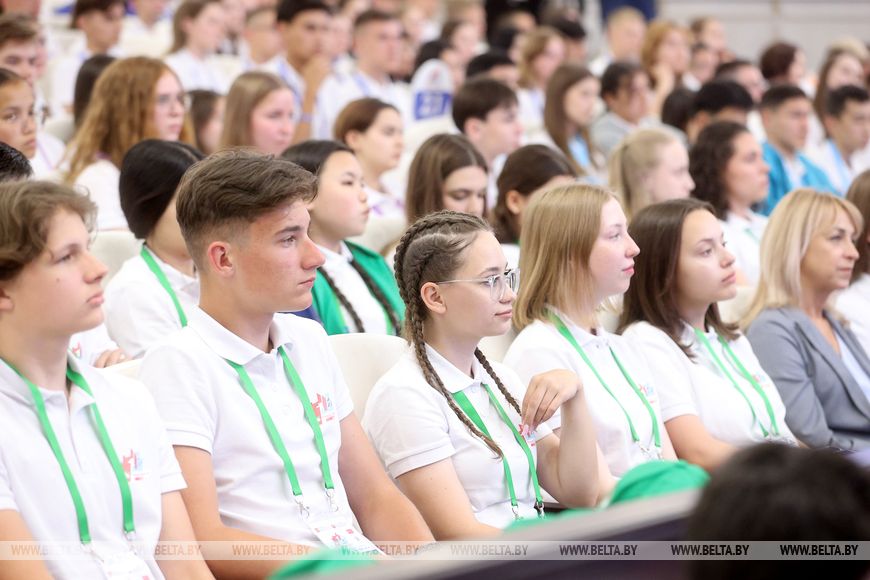
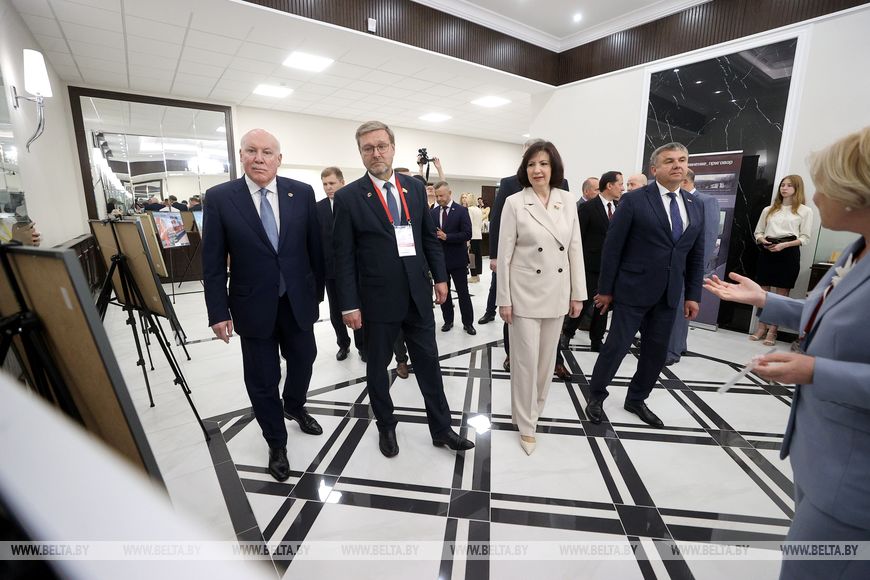
Natalya Kochanova noted that participants of the project in previous years are proud of being part of it. The chairperson of the Council of the Republic noted that more than 15,000 tenth graders from Belarus applied for the project, and the numbers speak for themselves. "This suggests that our memory of the events that historically united our peoples is alive and will live because the tragic history of what happened on our land, on the land of those who defeated the fascist aggressors will be passed on from generation to generation," the speaker said.
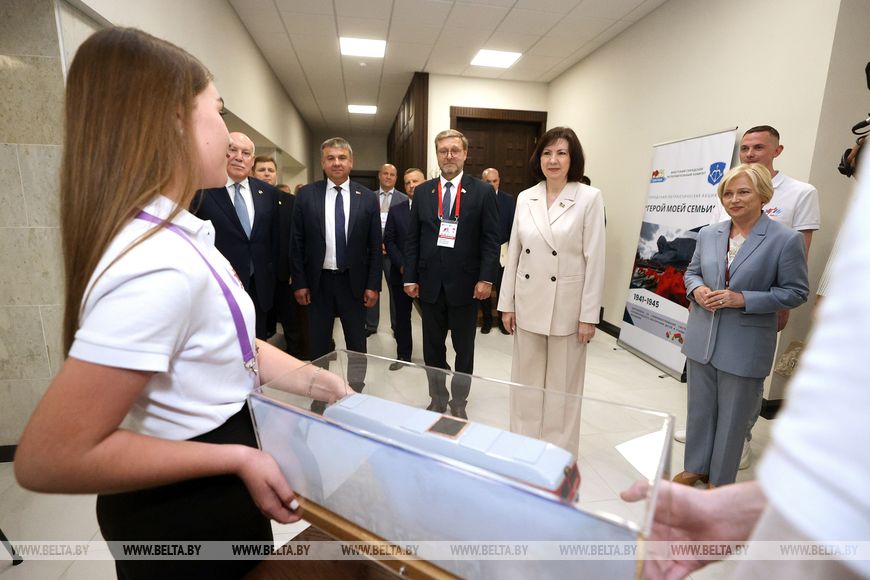
Natalya Kochanova stressed that the history of Brest Fortress should become a reminder that this should not be allowed. "For this we must honor the memory of those people who defended the freedom and independence of the Soviet Union at the cost of their lives," Natalya Kochanova said. “It has become a tradition to start the Memory Train in Brest, in the glorious Brest Fortress, so that our young guys get to know each other, make friends, remember their history and do everything to preserve this history and pass it on to their descendants. This must not be forgotten. This is what united us."
"This year is a special date for our country. 80 years ago, our country was liberated from the Nazi invaders. This Victory was achieved through a contribution of every nation of the former Soviet Union," Natalya Kochanova said, addressing the children from eight countries. "We are grateful. We bow low to all who liberated our country from the Nazi invaders, who gave us the opportunity to live under a peaceful sky."

The speaker emphasized the symbolism of the fact that the participants of the Memory Train project visit Brest first: "You know that Brest Fortress stood its ground for almost a month, despite the fact that fierce battles were already going on, that Minsk was bombed on the second or third day of the war. Brest Fortress put up a fierce resistance. Here,, people of different ethnicities fought shoulder to shoulder: Russians, Belarusians, Azerbaijanis, Armenians, Kazakhs, everyone who was then a citizen of the Soviet Union. A profound bow to our older generations for winning us peace and freedom."

Natalya Kochanova noted that participants of the project in previous years are proud of being part of it. The chairperson of the Council of the Republic noted that more than 15,000 tenth graders from Belarus applied for the project, and the numbers speak for themselves. "This suggests that our memory of the events that historically united our peoples is alive and will live because the tragic history of what happened on our land, on the land of those who defeated the fascist aggressors will be passed on from generation to generation," the speaker said.

Natalya Kochanova stressed that the history of Brest Fortress should become a reminder that this should not be allowed. "For this we must honor the memory of those people who defended the freedom and independence of the Soviet Union at the cost of their lives," Natalya Kochanova said. “It has become a tradition to start the Memory Train in Brest, in the glorious Brest Fortress, so that our young guys get to know each other, make friends, remember their history and do everything to preserve this history and pass it on to their descendants. This must not be forgotten. This is what united us."





